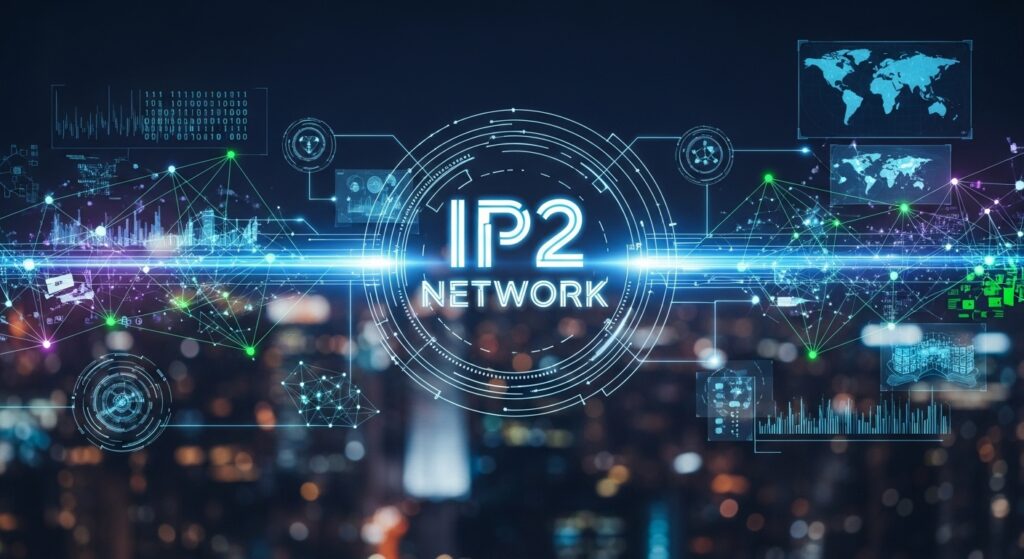In today’s fast-paced digital world, IP2 Network has emerged as a key player in providing innovative connectivity and data management solutions. The internet has evolved into a vast ecosystem where seamless communication, secure data exchange, and efficient networking are essential. The IP2 Network stands out as a technological framework that enhances speed, reliability, and protection for businesses and individuals alike.
Whether it’s powering cloud systems, enabling online gaming, or supporting global enterprises, IP2 Network ensures uninterrupted connectivity while maintaining robust security standards. This article explores its technology, architecture, benefits, and its growing role in reshaping modern networking infrastructures.
Understanding What IP2 Network Means
IP2 Network refers to an advanced networking system that utilizes the principles of Internet Protocol (IP) to optimize communication and data transmission. It supports a wide range of internet-based applications, providing a stable, high-speed framework that can handle massive data volumes efficiently.
At its core, IP2 Network works by routing data through intelligent nodes using optimized algorithms. It minimizes latency, improves data delivery, and safeguards information against cyber threats. This makes it ideal for businesses, streaming services, and data-driven organizations seeking superior network performance.
The Evolution of IP2 Network
Over the years, digital networks have evolved significantly. From basic dial-up connections to high-speed fiber optics, the internet’s transformation has been driven by innovation and demand for efficiency. IP2 Network represents the next phase of this evolution—designed to handle modern challenges such as data overload, cloud dependency, and cybersecurity threats.
This evolution didn’t happen overnight. It was the result of decades of research in network design, data encryption, and routing efficiency. IP2 Network integrates these advancements into a cohesive structure that supports real-time communication and next-generation applications.
Key Features of IP2 Network
| Feature | Description | Benefit |
|---|---|---|
| High-Speed Connectivity | Advanced routing and bandwidth optimization | Reduces latency and increases performance |
| Data Security | End-to-end encryption and protection protocols | Safeguards sensitive user data |
| Scalability | Supports growing data and user demands | Ideal for businesses and cloud platforms |
| Smart Routing | AI-driven traffic management | Enhances connection stability |
| Global Reach | Distributed server infrastructure | Enables worldwide accessibility |
These features demonstrate how IP2 addresses the common challenges of digital communication—speed, security, and scalability—while offering businesses a reliable foundation for data exchange.
How IP2 Network Enhances Data Security
In an age where cyberattacks are on the rise, IP2 Network prioritizes security above all. It incorporates multi-layered encryption systems that protect user information during transmission and storage. Additionally, its security algorithms identify and neutralize threats in real time, ensuring uninterrupted service and data integrity.
Unlike traditional networks, IP2 employs end-to-end encryption, meaning data remains encrypted from sender to receiver. This prevents interception, tampering, or unauthorized access. Its adaptive security model also adjusts to emerging threats, making it a preferred solution for enterprises managing sensitive information.
The Architecture of IP2 Network
The architecture of IP2 is built on four core components:
-
Data Nodes – These are the backbone of the network, responsible for transmitting and routing data efficiently.
-
Control Centers – Manage the distribution of network traffic and maintain optimal load balance.
-
Security Modules – Constantly monitor network activity and detect anomalies to prevent cyber threats.
-
User Interface Layer – Provides end-users and organizations with easy access and monitoring tools.
This structure ensures that IP2 operates smoothly while maintaining transparency and accessibility for users and administrators.
Benefits of Using IP2 Network
Implementing IP2 offers numerous benefits across industries. Some key advantages include:
-
Improved Performance: High bandwidth and optimized routing deliver faster internet speeds and low latency.
-
Enhanced Privacy: Advanced encryption ensures complete protection against data breaches.
-
Global Connectivity: With distributed nodes, users enjoy seamless connections across continents.
-
Reduced Downtime: Smart algorithms detect potential failures and reroute data automatically.
-
Cost Efficiency: Its scalable architecture minimizes infrastructure expenses for organizations.
These benefits make IP2 a top choice for sectors such as finance, telecommunications, gaming, and digital media.
Applications of IP2 Network in Modern Technology
IP2 Netwok plays a critical role in shaping several modern technologies. It supports:
-
Cloud Computing: Ensures efficient storage, retrieval, and management of data across remote servers.
-
Internet of Things (IoT): Connects smart devices securely and enables smooth data exchange.
-
Blockchain Technology: Strengthens decentralized data transmission for secure transactions.
-
Streaming Services: Provides high-quality, buffer-free media experiences.
-
Artificial Intelligence: Supports machine learning operations through fast data flow and analytics.
This adaptability highlights how IP2 is not limited to one domain but serves as the foundation for the digital future.
Comparison Between IP2 Network and Traditional Networks
| Aspect | Traditional Network | IP2 Network |
|---|---|---|
| Speed | Moderate | Ultra-fast |
| Security | Basic encryption | Advanced multi-layered security |
| Scalability | Limited | Highly scalable |
| Reliability | Dependent on hardware | AI-optimized routing |
| Cost | High maintenance | Cost-efficient and adaptive |
This comparison clearly shows that IP2 surpasses traditional models in both performance and security, making it a superior option for modern enterprises.
Challenges Faced by IP2 Network
Despite its advantages, IP2 Netwrk faces some challenges:
-
Initial Implementation Costs: Setting up the infrastructure requires investment.
-
Maintenance Requirements: Continuous monitoring and updates are needed for optimal performance.
-
Integration Complexity: Combining legacy systems with IP2 can be technically demanding.
However, these challenges are steadily being addressed through automation, better hardware, and advanced integration tools.
The Future of IP2 Network
Looking ahead, IP2 is expected to play a vital role in advancing digital communication. As artificial intelligence, 5G, and quantum computing technologies mature, the network will evolve to accommodate even greater data speeds and tighter security measures.
Future developments may include:
-
Quantum-level encryption for enhanced privacy.
-
AI-managed bandwidth distribution for automated efficiency.
-
Greater integration with smart cities and edge computing platforms.
The future of IP2 is not just about faster connections—it’s about enabling a smarter, more connected world.
Conclusion
The IP2 Network stands as a cornerstone of digital transformation, bridging the gap between performance, security, and global connectivity. Its powerful infrastructure and intelligent design make it a preferred choice for businesses seeking reliable data solutions.
As the world becomes more dependent on digital communication, the demand for efficient and secure networks will continue to grow. With its forward-thinking technology and adaptability, IP2 is poised to lead the way toward a more secure and connected future.






